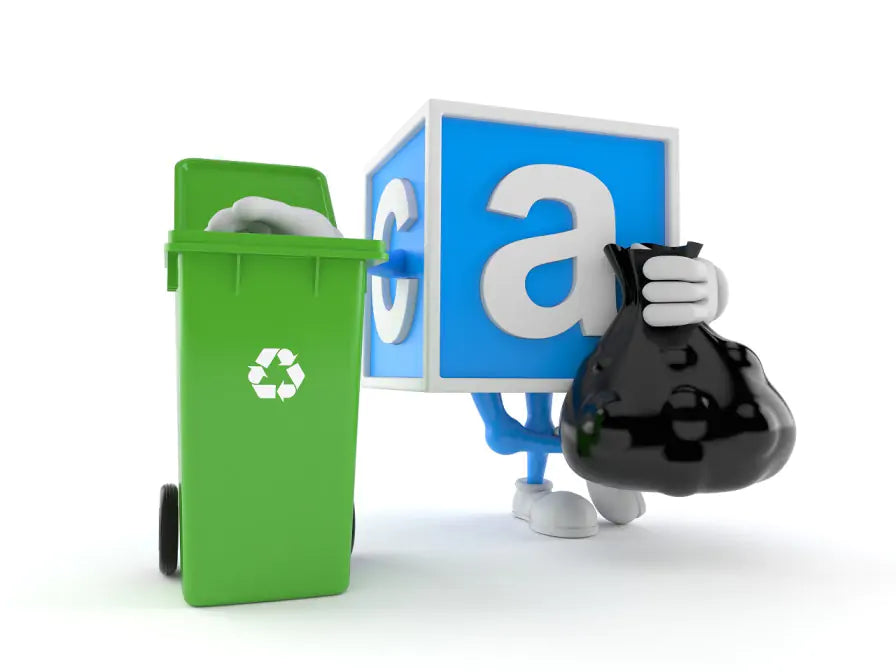Why not add these to compliment your wheelie bins?
Your basket is currently empty.
Shop NowWe guarantee to have the lowest price! Find the same bin for a cheaper price and we will beat it!

In this series of blogs, we’re going to look at rubbish. From the good to the bad and downright ugly, we’ll be looking at everything you ever wanted to know, from A right down to Z.

Back in 2017, the government introduced England’s first ever litter strategy. The strategy sets out how the government is working with communities and businesses to tackle the growing litter problem.
The government committed to 36 actions, which can be classified into 3 areas:
What exactly is the government doing to tackle litter?
Here are just some of the ways that the government is waging a war on litter.
Delivering an anti-litter campaign
In November last year, the government launched “Keep it, Bin it” with support from Keep Britain Tidy. The campaign is almost completely funded by commercial businesses, including those whose packaging is often littered. The campaign’s message is ‘if there’s not a bin nearby, keep your rubbish and then bin it when you find one.’
Hard-hitting imagery of wildlife getting tangled up in litter is being used as part of the campaign, as is a campaign film, social media coverage, and advertising on digital screens and posters at railways stations and in pubs across the country.
The campaign has also been integrated into Mars Wrigley Confectionery’s ‘Bin it!’ schools programme. This includes the Bin It! Roadshow which features live actors who go into schools and educate and engage young people on the subject of litter.
Supporting national clean-up days
The government lent its support to national clean up days like the Great British Spring Clean, and the Great British Beach Clean, and used its influence to get as many people and organisations involved as possible.
Recognising the good work of volunteers
Recognising the work of volunteers who are looking after their local environment can help inspire more people to get out and look after their communities. The government announced five ‘Point of Light’ awards in line with the Great British Spring Clean which recognised outstanding individuals who are making a change in their community.
Consulting on the possible introduction of a deposit return scheme in 2023
The government held a consultation about the introduction of a deposit return scheme earlier this year. It looks like England might have a scheme in place by 2023, which will be aimed at increasing recycling rates, reducing littering, and recovering materials for reprocessing.
Improving enforcement
Fixed penalties for littering were increased after the introduction of legislation in April 2018. Maximum and default fixed penalties were increased from £75 to £100 and from £80 to £150 respectively. From 1st April this year, the minimum fixed penalty notice for littering also increased, from £50 to £65. Fixed penalties for graffiti, fly-posting, the unlicensed distribution of free printed material in a designated area, and littering from vehicles have also increased.
In January this year, legislation came into force which gave councils powers to issue penalty notices of up to £400 to householders who use fly-tippers to get rid of their waste.
Cleaning up the road network
Highways England is working with organisations like Keep Britain Tidy, motorway services operators, and local authorities to share knowledge and best practice, and run information and awareness campaigns.
Earlier this year, Highways England ran its own Great British Spring Clean campaign and collected over 19,000 bags of litter from the side of England’s road network. The campaign ran between the beginning of March and the end of April, and was supported by a social media campaign.
Highways England monitors and takes action at 25 locations which have been identified as ‘litter hot spots.’ 6500 bags of litter have been removed from these locations alone in the past year.
Introducing the Litter Innovation Fund
The Litter Innovation Fund provides grants to community projects, environmental campaigns, and companies that come up with sustainable innovations. There have been three rounds of funding to date, and all successful projects have to submit a report, assessing how successful their project was. All of the successful projects are then assessed for their possible effectiveness as a wider intervention to reduce litter.
The government works with successful applicants to find out how they monitor and evaluate the success of their projects, and then use the findings to produce guidance on monitoring and evaluation for future fund applicants. The guidance will be tested on subsequent applicants before it’s published for wider use next year.
Due to the incoming simpler recycling legislation we are experiencing a huge increase in demand. All orders are being processed as fast as possible, but there is a delay of around 2-3 weeks at present. We will respond to all emails as soon as we can but please bear with us as we work through the backlog.